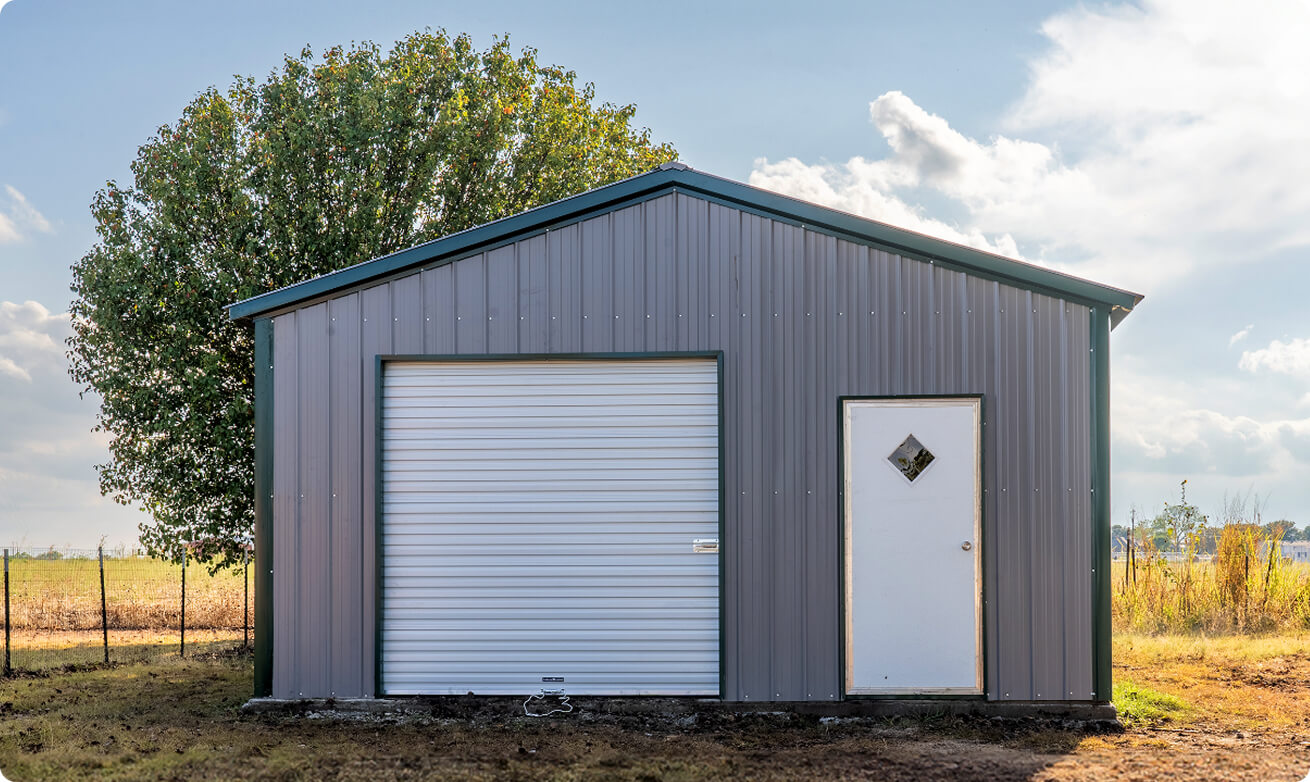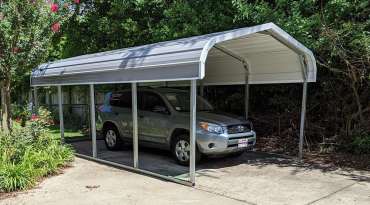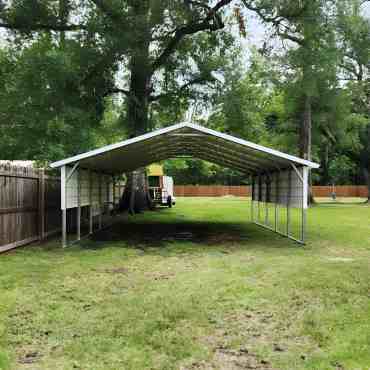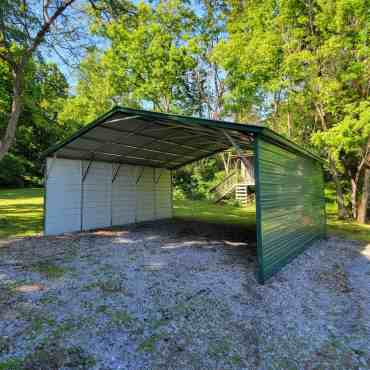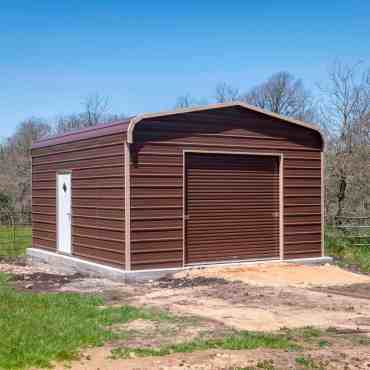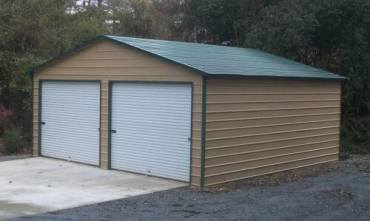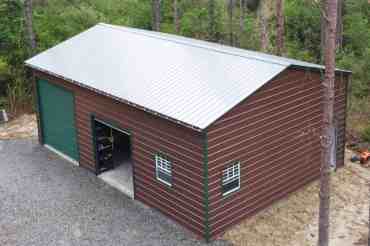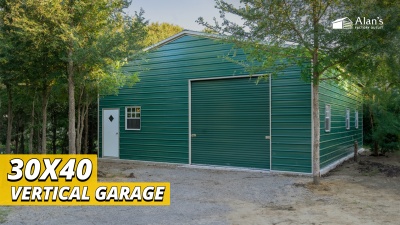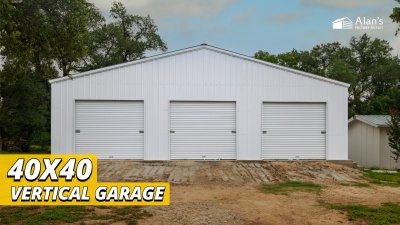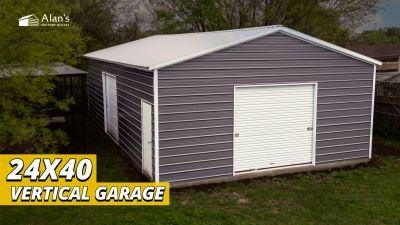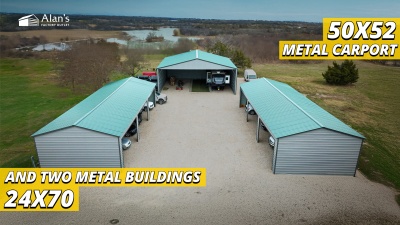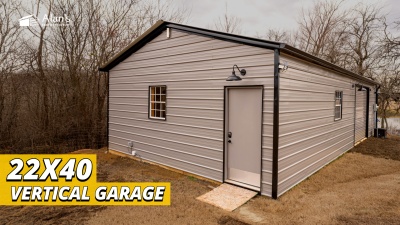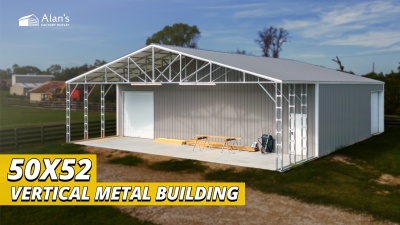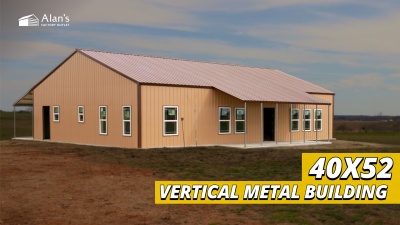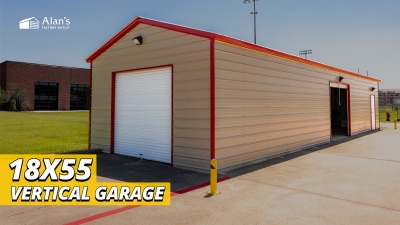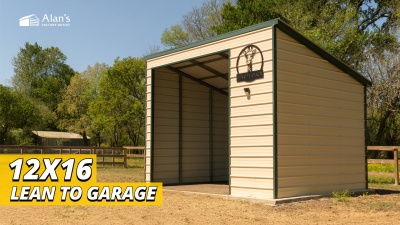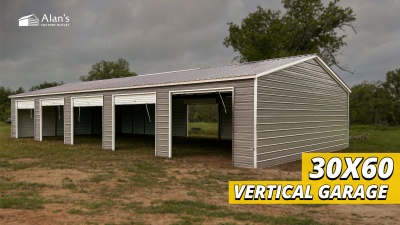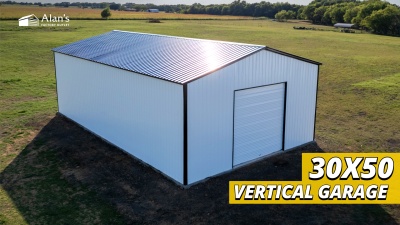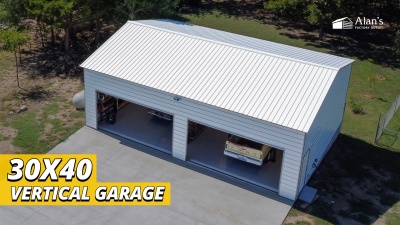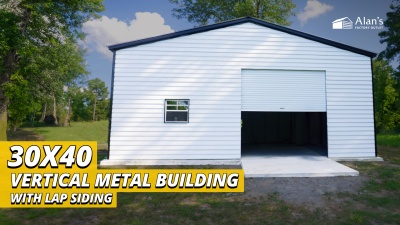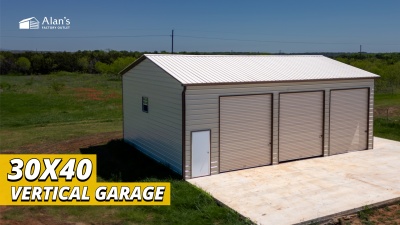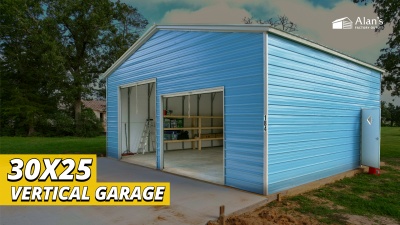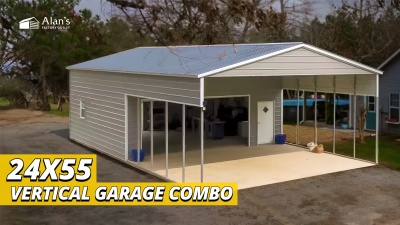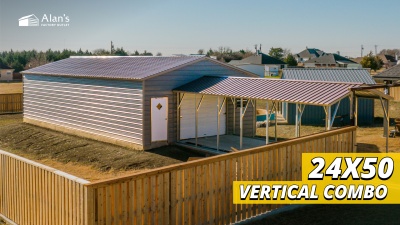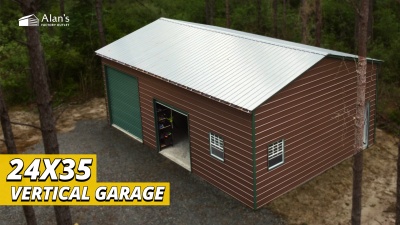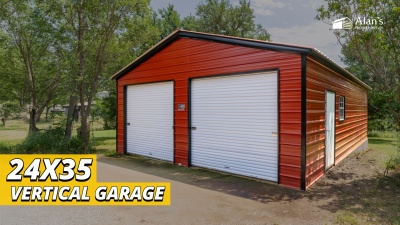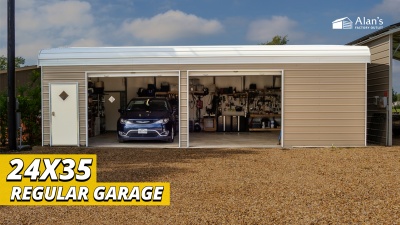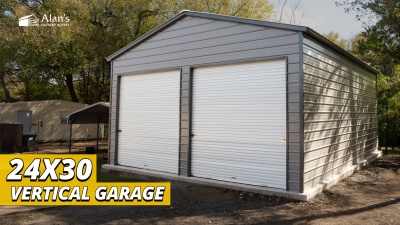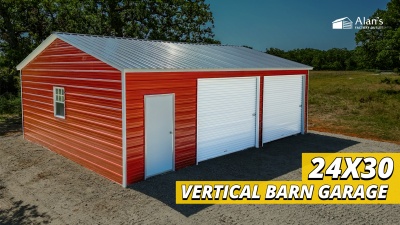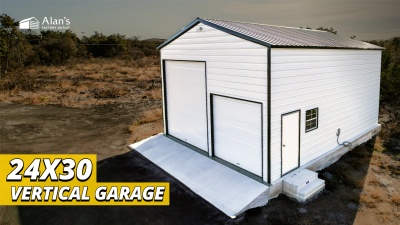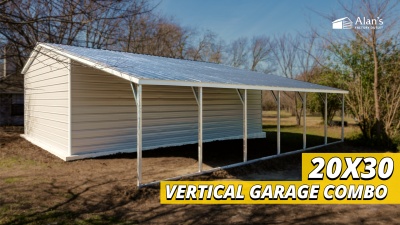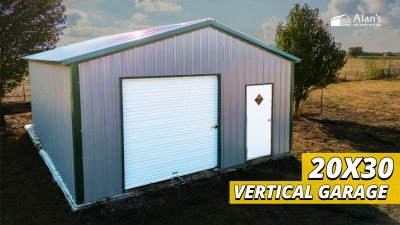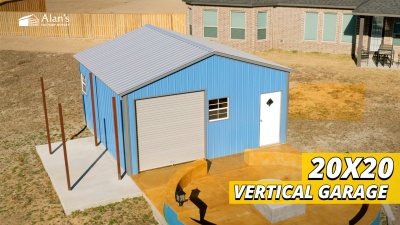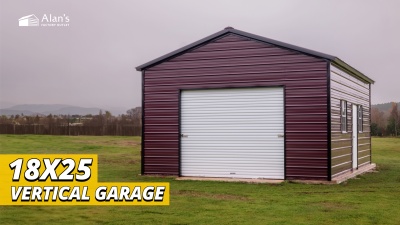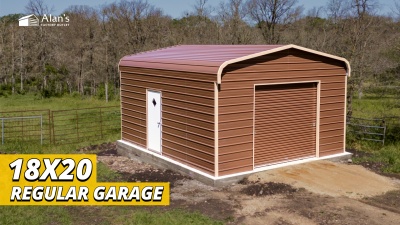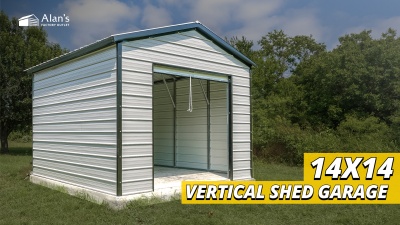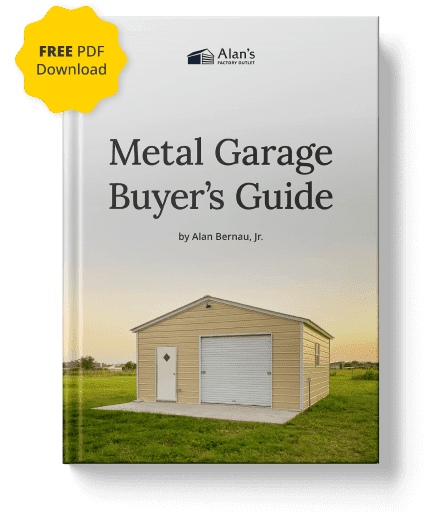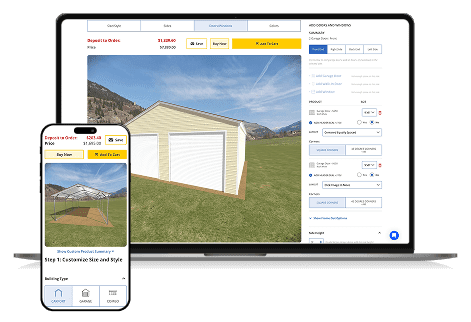Our metal garages are made in the USA, come with a 20-year warranty on optional 12-gauge tubing, require minimal maintenance, and include free delivery and installation with only a deposit required at delivery.
Get a Custom Metal Building at Unbeatable Factory-Direct Prices
Instant Transparent Pricing
At Alan’s, we have nothing to hide. Get instant pricing on metal buildings online. No contact details required. No unwanted sales calls.
Fast Delivery and Installation
Alan’s Factory Outlet metal buildings and carports are delivered and installed saving you time. Delivery and installation is free.
Certified Metal Garages
Get a 1-year craftsmanship warranty plus a 20-year rust-through warranty on optional 12-gauge framing and most roof panels.
Risk-Free Guarantee
We guarantee a 100% refund of your deposit until the day your metal building is delivered. We don’t know anyone who will match our guarantee.
Get an Instant Quote for Your Custom Garage
Choose your size, style, and roof — get a real-time estimate right away.
Buying a Metal Garage on Alan’s – Step by Step
Metal garage buildings are great for workshops or extra storage space for anything from farm equipment to arts and crafts.
We offer a wide variety of metal garages, each backed by a one-year workmanship warranty from the installation date.
Buying one is simple. You can do it online with our user-friendly 3D editor. The following step-by-step guide will show you how to choose and customize your new metal garage.
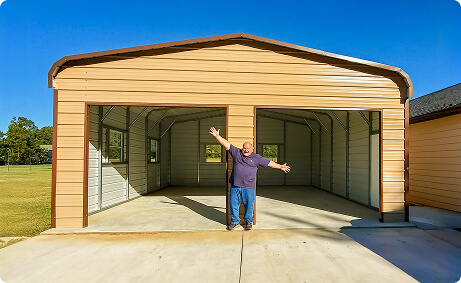
STEP 1
Start With One of Our Popular Steel Garage Buildings
Select one of our featured configurations below to preload doors, windows, and other options shown in the images below. It’ll save you time.
Don’t worry if the garage isn’t exactly what you want; you can customize it later.
STEP 2
Choose Your Garage Size
You can customize the garage’s width, depth, and height. Longer steel garages only work with vertical roofs. If you’re building a residential garage, consider whether it’ll be an attached or detached garage and how many vehicles you plan to park.
| Garage Size | Width (ft.) | Depth (ft.) | Area (sq. ft.) |
|---|---|---|---|
| 1-car garage | 12’-18’ | 20’-30’ | 240-540 |
| 2-car garage | 20’-24’ | 20’-30’ | 360-660 |
| 3-car garage | 30’-36’ | 20’-30’ | 600-1,260 |
| 4-car garage | 40’-48’ | 20’-30’ | 800-1,600 |
STEP 3
Choose a Roof Style for Your Garage
You can choose from different roof styles, including regular, boxed eave, and vertical roofs.
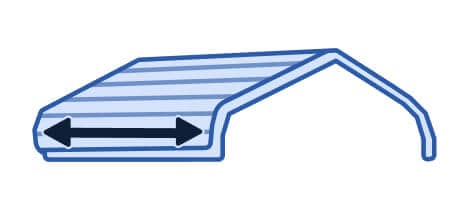
Regular Roof Garage
The regular roof style has a bow that gives it a unique shape
- Barn-shaped
- Rounded design
- Most cost-effective option
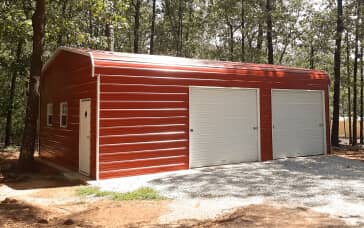
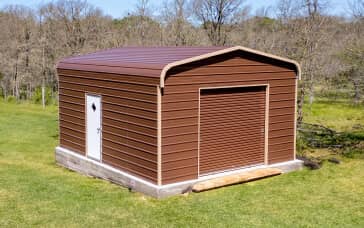
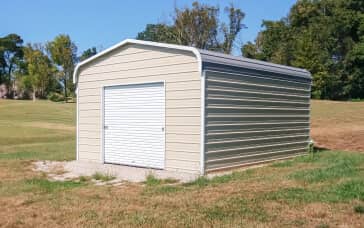
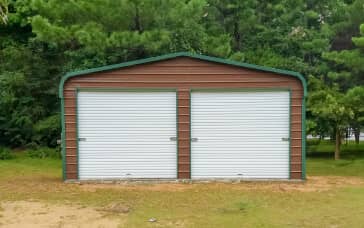

Boxed Eave Roof Garage
This A-frame roof style has panels that run from front to back
- Similar aesthetic to vertical roofs
- Has horizontally aligned panels
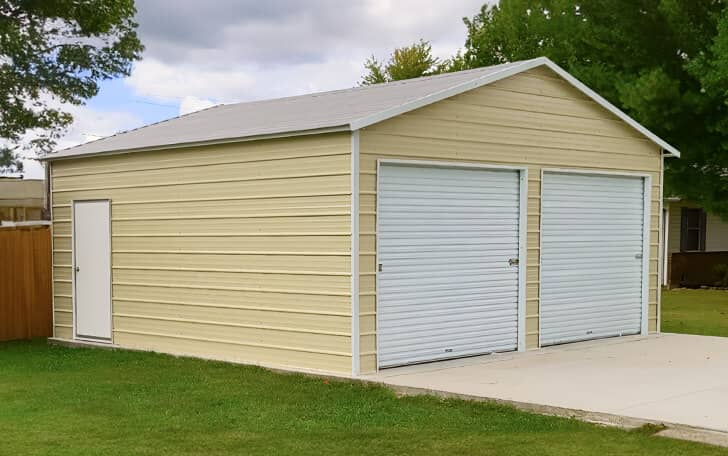
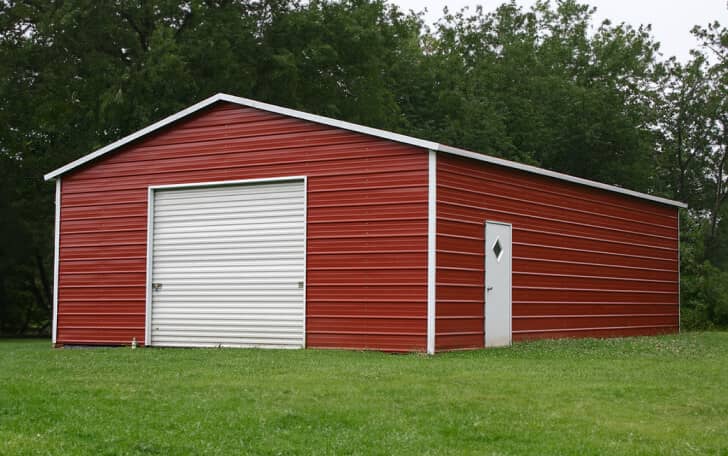
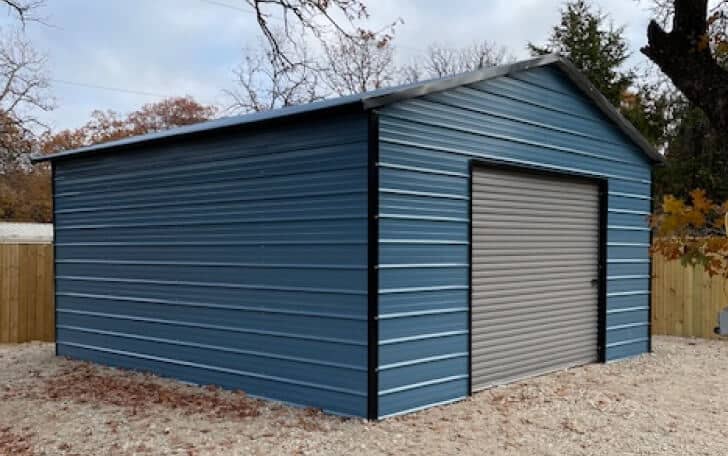
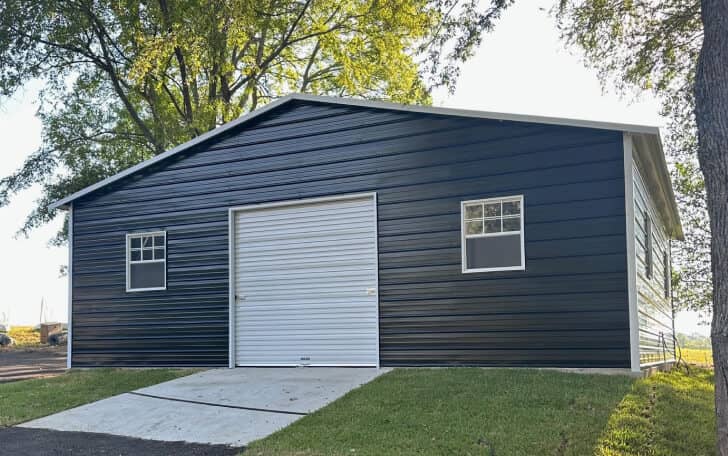

Vertical Roof Garage
The vertical roof style is the strongest roof style available
- Vertical sheeting allows rain and snow to slide off easily
- Ideal for structures over 40 feet to prevent leaks
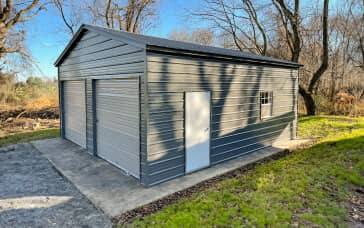
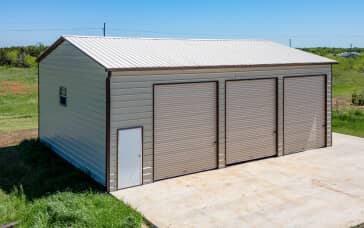
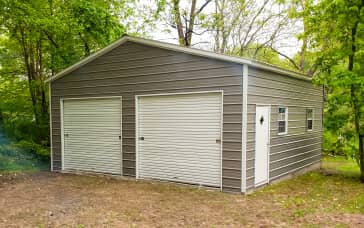
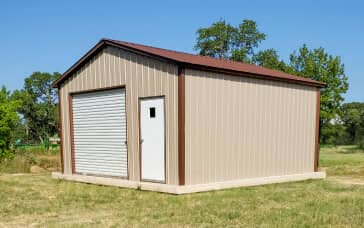
STEP 4
Choose Your Garage Height
Consider the space available for the foundation and the height you need for your vehicles and other items to fit in nicely.
The following calculator can help you estimate the leg height you’ll need.
Roof Center Brace Clearance & Peak Height
Select your carport or garage preferences to see the center clearance and peak height.
Learn more about height clearance and building heights on our Height Clearance Calculator page.
STEP 5
Customize Your Steel Garage
Decide on the number and size of doors and windows you want. You can also change the color to fit your taste or your home’s color, which is especially relevant if you’re building a residential garage.
Once you’re done, you’ll get a detailed quote. If you agree with the amount, hit the “Buy Now” button.
STEP 6
Get Your Permit
Once you pay the deposit for your custom metal garage, you’ll be able to download the engineered plans. You can take them to your building authority to get your permit.
STEP 7
Prepare a Space for Your Prefab Garage
Before we deliver your new garage, set up a level gravel pad or concrete slab, and make sure the foundation is the right size.
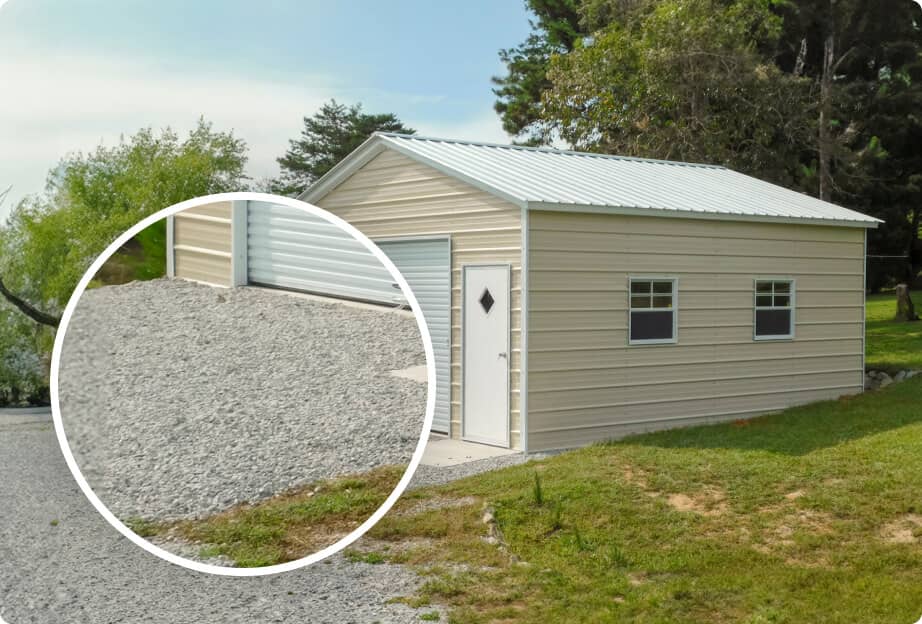
For gravel pad
We recommend your gravel pad to be 2 feet longer and 2 feet wider than your garage size.
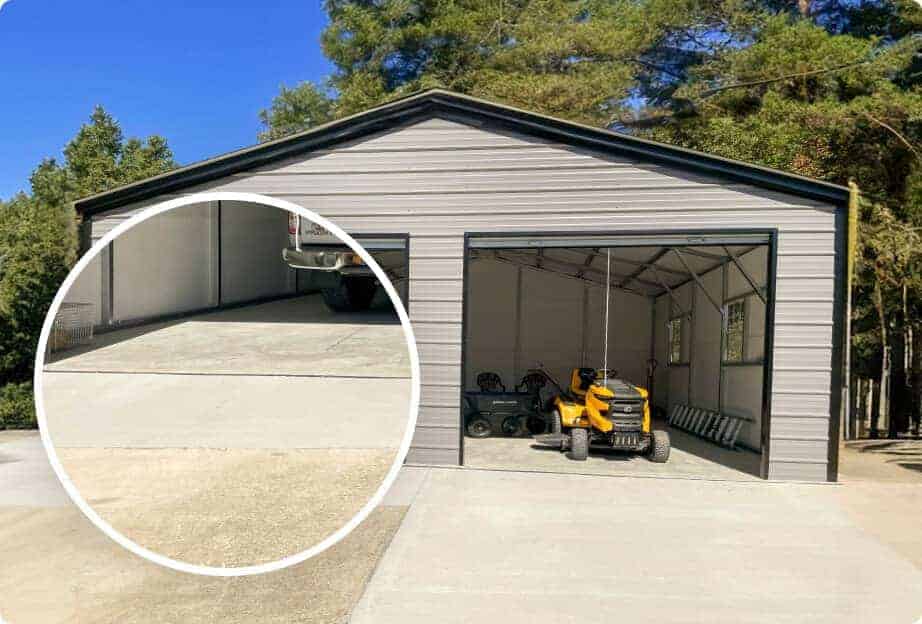
For concrete pad
Typically, we recommend your concrete pad to be at least 1 foot longer and 1 foot wider than your garage size. Use our concrete pad calculator to confirm your pad size.
Learn more about Concrete Pads on our Concrete Pad Size Calculator page.
Reviews from Our Happy Customers
Alan’s Factory Outlet is a legitimate business with an A+ rating from the BBB.
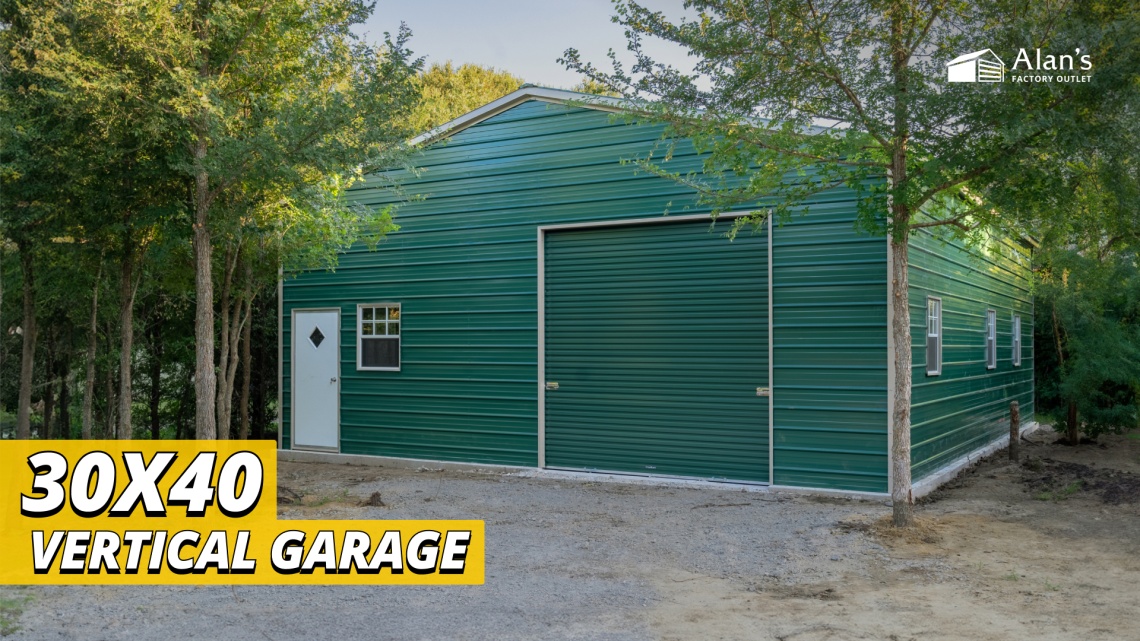
Free Delivery and Installation in 20 States
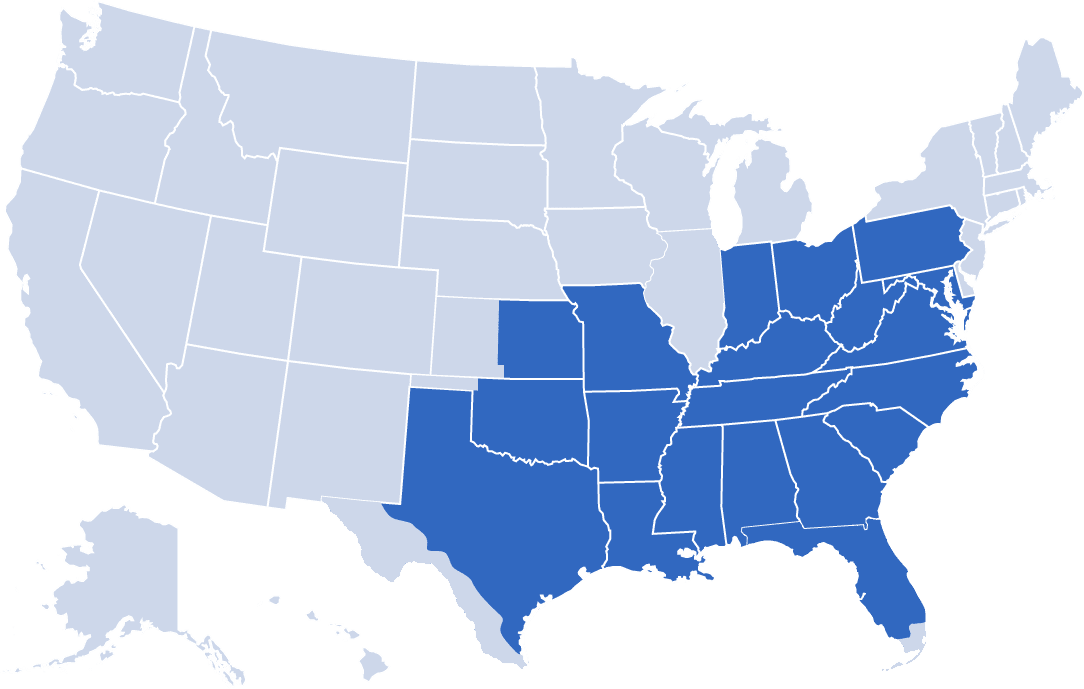
Why Shop Alan’s Factory Outlet for Metal Buildings?
Frequently Asked Questions
At Alan’s Factory Outlet we pride ourselves on offering high quality metal garages at affordable prices. Our garages have plenty of customization options, free delivery and expert installation.
Want to hear from real customers? Check out our customer reviews to see what they have to say!
Our prefab garage prices start at $3,540 but the final price depends on size, roof style and custom options you choose. If you want a basic 8×8 garage door you’ll need to add about $600 to the base price. Since prices vary by region we recommend using our 3D Builder to explore different configurations and get a quote for your area.
Yes! We offer free delivery and installation in select states so you don’t have to worry about setup. Delivery times vary by location and order amount. To see estimated timeframes for your area visit our Estimated Delivery Time page.
Yes! Metal garages are a cost effective way to add a strong and long lasting structure to your property. They’re durable, low maintenance and can even increase your homes value. If you’re looking for a hassle free solution that will last for decades a metal garage is a great choice!
We don’t handle site preparation. You must prepare the site and lay the foundation before we deliver the prefab garage kit and install it. You can choose between a level gravel pad and a concrete slab. The rest of the installation work is on us.
You can use our 3D custom garage builder to get a very accurate idea of what your chosen garage will look like. This interactive tool lets you design your garage and see it from any angle, both inside and outside.
No. Alan’s Factory Outlet metal garages come with standard hand-operated roll-up garage doors. However, you can easily install a garage door opener. Many models from known brands like LiftMaster work on roll-up doors like ours.
Once the crew is on-site with all the tools and hardware, it’ll typically take them one to two days to complete the installation, depending on the garage’s size and design.
When you buy a metal garage from Alan’s, you’ll get a copy of the engineered plans of your design. You can use those plans to get your permit.
Yes. In most counties and townships, you’ll need a building permit to install a metal garage. However, the specific requirements depend on your local building codes and regulations.
Please note that we’ll need the building permit to deliver and install your garage on your property.
Do you have a general question?
Get quick answers to common questions in our Help Center, an extensive knowledge base available 24/7.
Do you need something specific?
Please fill out the form on this page, or call us at 1-800-488-6903 (M-F, 8-6 Eastern).
